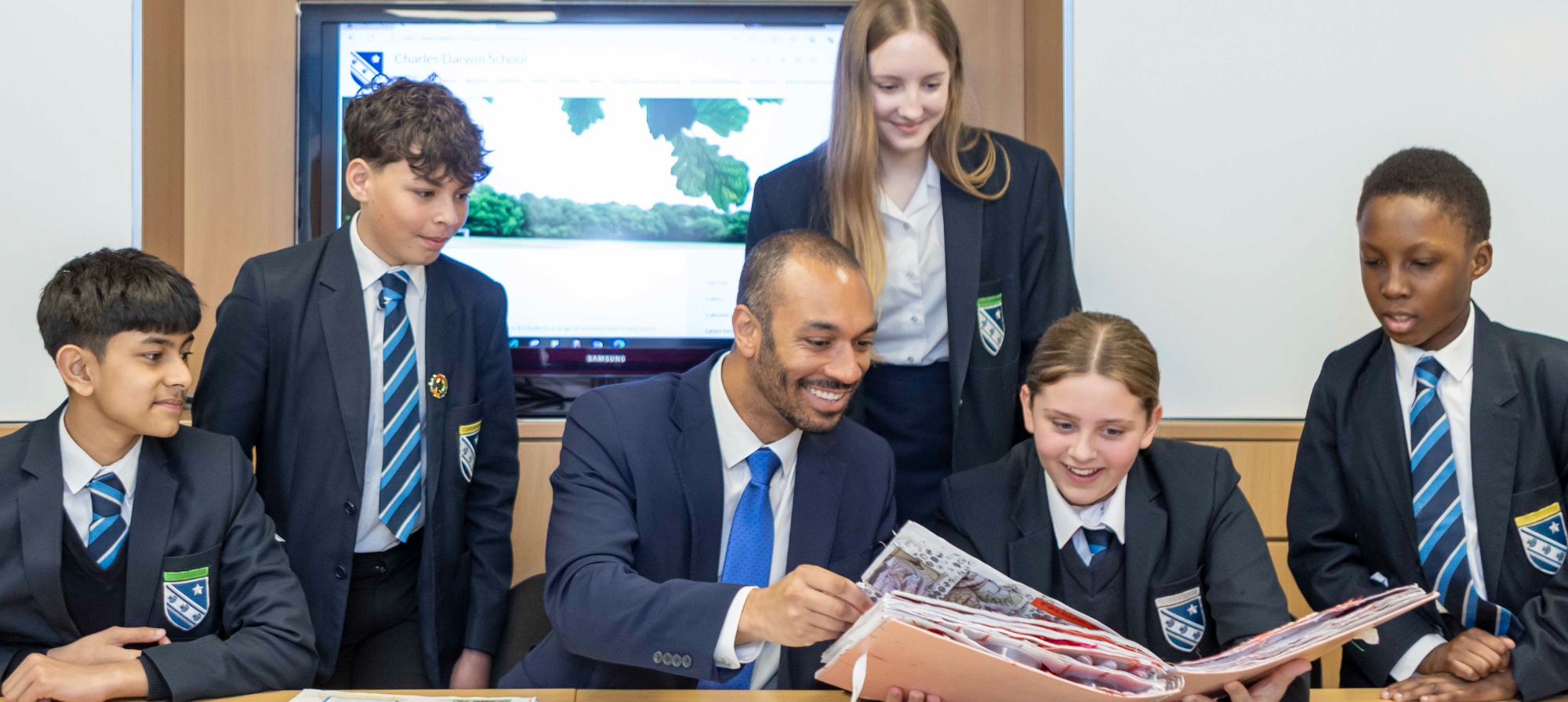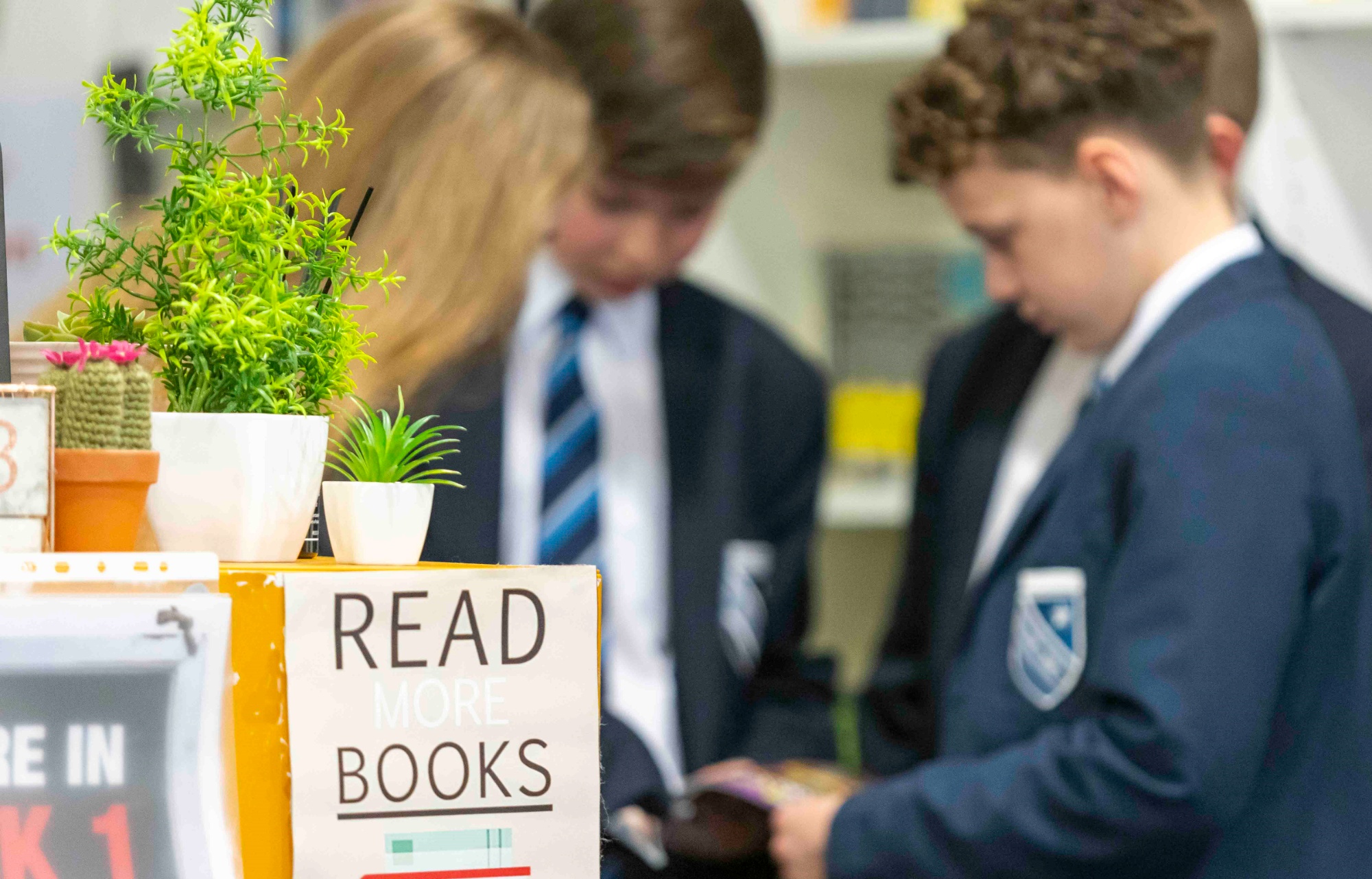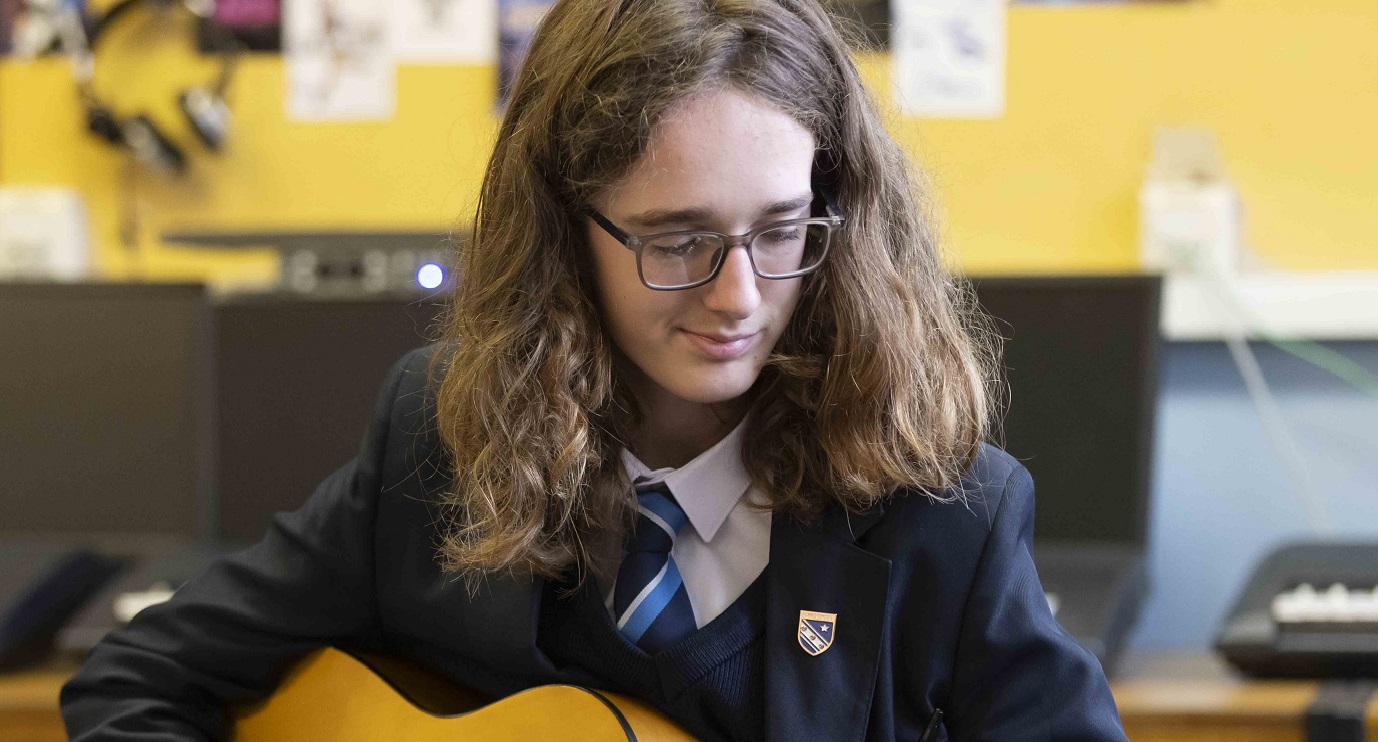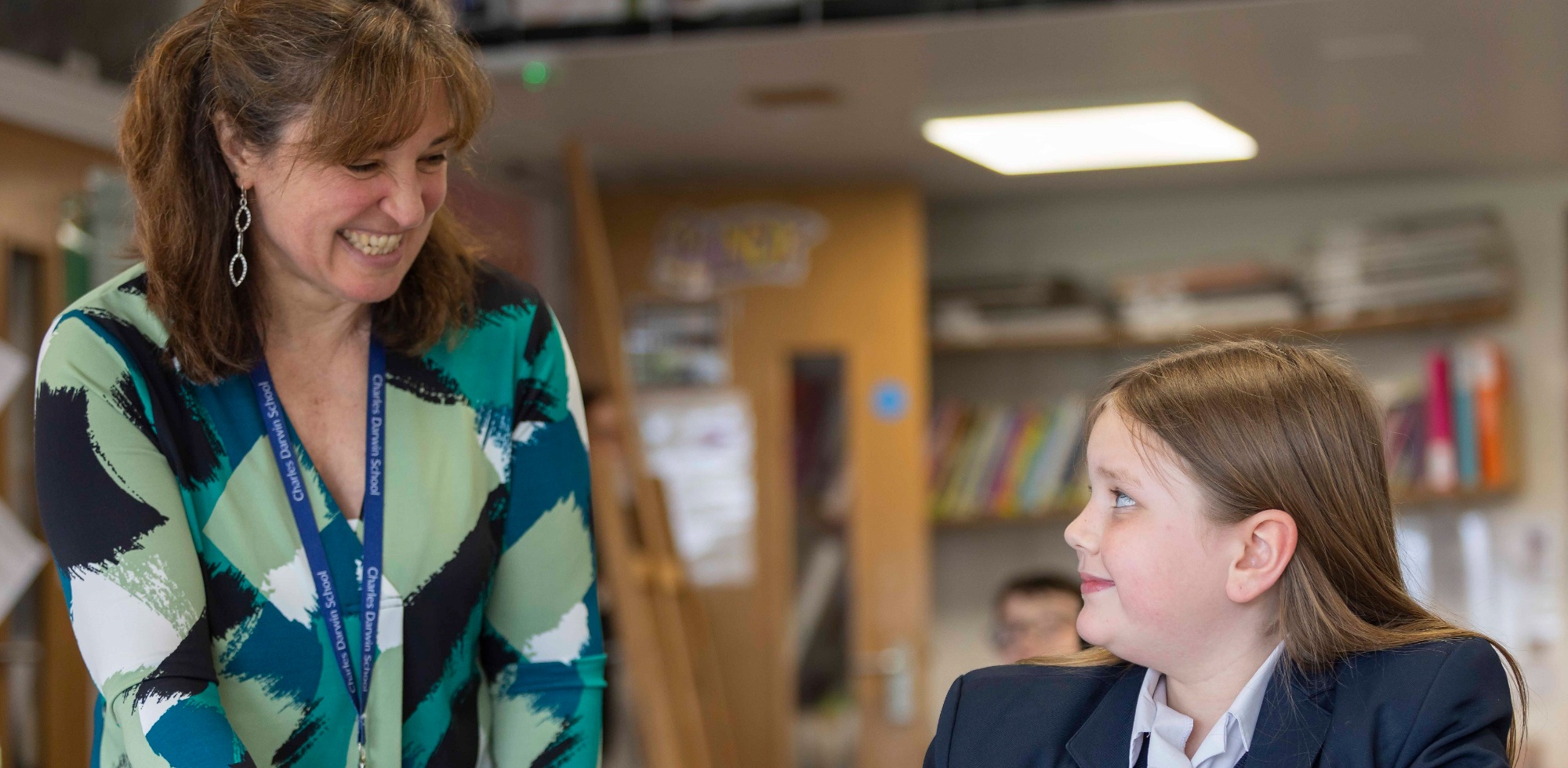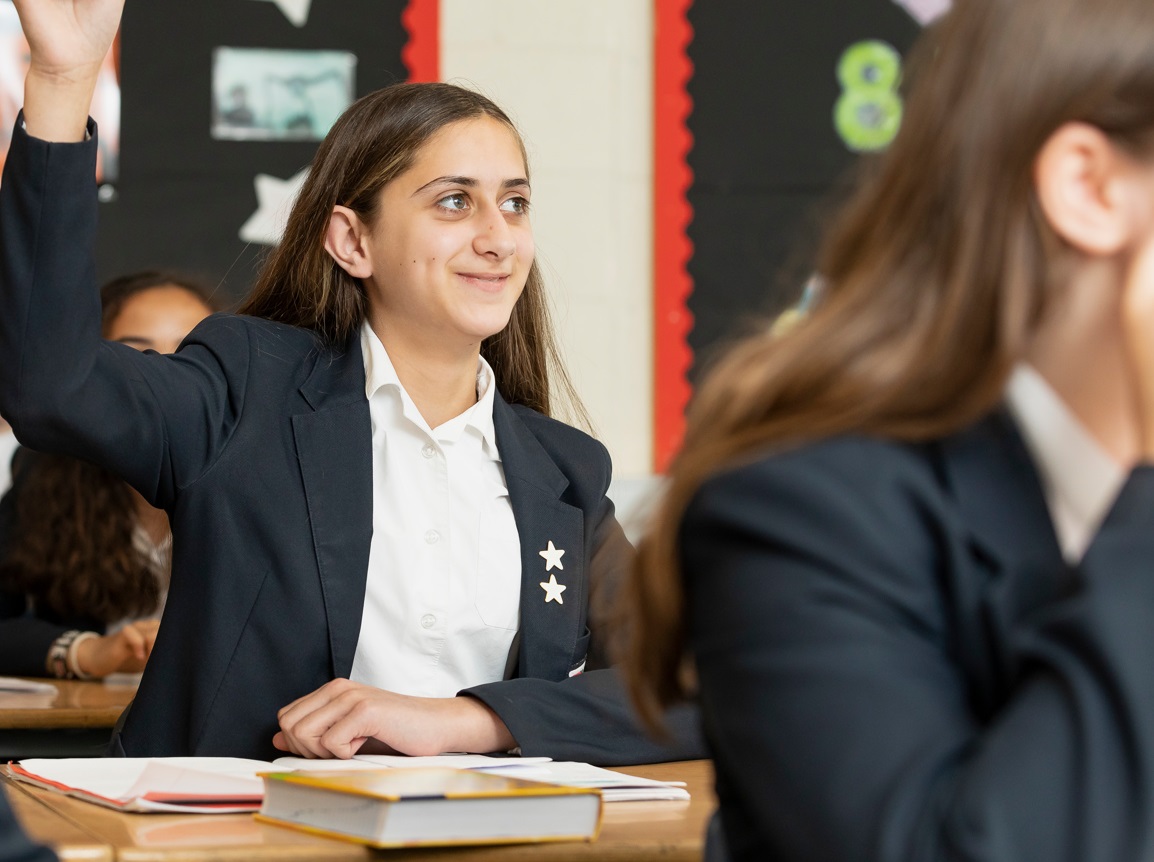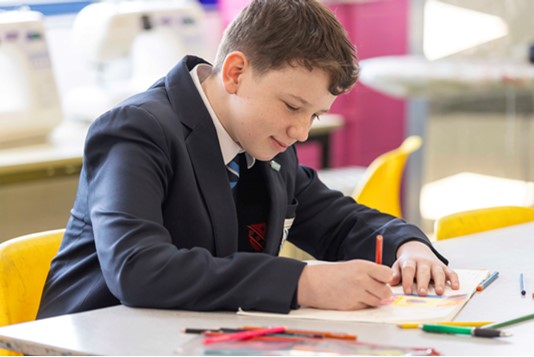British Values
At Charles Darwin School we have a duty to ‘actively promote’ the fundamental British values of democracy, the rule of law, individual liberty, and mutual respect and tolerance of those with different faiths and beliefs through:
- an understanding of how citizens can influence decision-making through the democratic process
- an understanding that the freedom to hold other faiths and beliefs is protected in law
- an acceptance that people having different faiths or beliefs to oneself (or having none) should be accepted and tolerated, and should not be the cause of prejudicial or discriminatory behaviour
- an understanding of the importance of identifying and combatting discrimination
At Charles Darwin School we are all proud to belong to a community which encompasses both urban and rural catchments. Our work on experiencing social, moral, spiritual and cultural understanding empowers us to develop our students’ understanding and experience of modern British values: what it means to be a British citizen and how we can all promote tolerance, resilience and an understanding of other cultures. Not only are these values of British citizens, but underpin the values of good citizens in school, our local community as well as in our global community. Every Monday year group assemblies are led by the Senior Leadership team promoting a set of calendared themes across the school year, ensuring that each year group have a set of values promoted on a half termly basis. There are planned tutor programmes for each year group, including the 6th form, that set out to promote these values, whilst allowing students the opportunity to discuss and debate with peers and tutors.
Students in year 7-10 take part in planned drop-days to develop their work around Growth Mindset; developing resilience, learning from mistakes and developing skills to prepare for life in our ever-changing modern society. All students in year 7-10 in addition to years 12 and 13 have a 99 steps to building character and confidence passport; Each key stage has a set of differentiated tasks, cultural experiences and challenges to develop strength, resilience, cultural and social understanding. It is the school’s view that developing these strategies will support better learning and produce rounded young adults, ready for the world beyond school.
Through the curriculum, through pastoral experiences during tutor times and assemblies and through extra-curricular work, our pupils gain an understanding of these values through:
Democracy
The curriculum is designed to promote democracy across all subjects, through voting and through teaching the values of democracy in society. All pupils will learn about democracy from a theoretical perspective in History and Citizenship at key stage 3. This area of humanities is where they consider the advantages and disadvantages of democracy, and how democracy and the law works in Britain, in contrast to other forms of government in other countries. Democracy has roots in specific Geography schemes of work and is debated in English lessons, through the medium of historical and contemporary texts. Pupils also experience how democracy works by actively promoting democratic processes through the election of the head boy and head girl, which involves all pupils, teaching and non-teaching staff, from the hustings and selection through to manifesto and ballot box voting. Pupils elect on a termly basis the student voice representatives who are then also shortlisted to run for School Council. School Council and Student Voice both have decision making meetings across the year group.
The Rule of Law
The curriculum is designed to ensure pupils are taught the values and reasons behind laws, that they govern and protect us, the responsibilities this involves and the consequences when laws are broken. Students learn the value and reasons behind the rules which we abide by in school and also the wider laws that exist within society. The key stage 3 and 4 curriculum in history plans for ancient and modern legislation. Pupils are rewarded for excellent/model behaviour and are aware of the consequences of not following the rules of the classroom and of the school, and how they mirror the laws of society. Each year planned assemblies include; The Metropolitan Police; covering key stage 3; Transport for London to assemblies also with years 7-9 to discuss the law and the rules of using public transport. E-safety and the law is covered in all year groups by a lead member of SLT.
Individual Liberty
Pupils are taught that with rights come responsibilities. Pupils are actively encouraged to make independent choices knowing that they are in a safe, secure and supportive environment. The curriculum is designed so that it promotes debates and discussions within class. This enables learners to make informed choices based on the evaluation of facts. For example, students are taught about the risks of using the internet and how they can keep themselves safe in the ICT curriculum, and through all key stages in E-safety, rights and ethics surrounding scientific discoveries such as evolution, modern genetic engineering and cloning techniques, impact of global warming, slavery, war/conflict and through literature. The English department have particular focus on developing young peoples’ understanding of rights and responsibilities which is reflected in the style of learning and the literature that is used to promote libertarian understanding. The school’s approach to liberty and respecting the right for students to have their own freedoms, without the disrespect of others, is seen through planned tutor programmes and in the conduct of students and staff in classrooms.
Respect and Tolerance
Respect and tolerance are promoted in all subject areas and through the pastoral system, as well as in classrooms. Everyone has a right to be listened to and respected. Pupils learn about the consequences of a lack of tolerance and respect, which is promoted through the pastoral system and in class through the behavioural routines that allow students to listen to and contribute to class discussions. The plan of assemblies across the year focuses on developing an understanding of cultures and cultural identity and that other people might have different values and beliefs to the pupils’ own. Staff use appropriate opportunities in lessons and through the pastoral programme to allow pupils to experience other cultures and the viewpoints of those cultures. There are opportunities to develop cultural experiences through extra-curricular visits and trips. Parents speak highly of the way in which that the school fosters the development of pupils’ understanding of respect and tolerance, particularly in recent years. In RE, students investigate how the church fits into the 21st Century and in year 10, we have a unit focused on marriage and the family with a subsequent unit focused on Community Cohesion – dealing with racial intolerance, extremism and hatred in addition to a focus on community values. Teaching pupils to respect other faiths and beliefs is not limited to RE as students do not study this in upper key stage 4.
British values and SMSC are embedded throughout a broad and balanced curriculum, as well as in the school’s ethos and vision.

